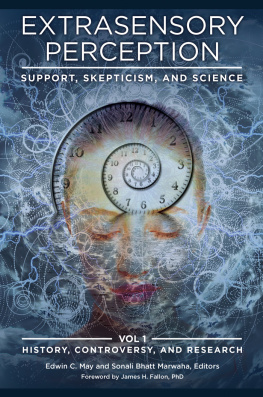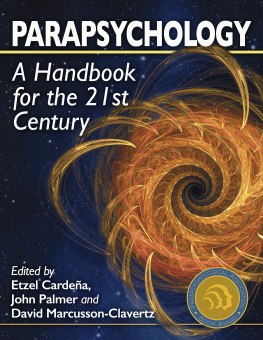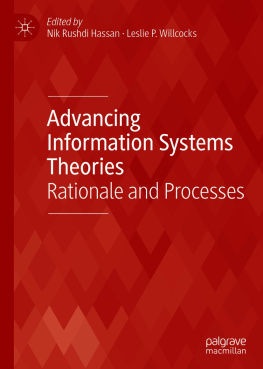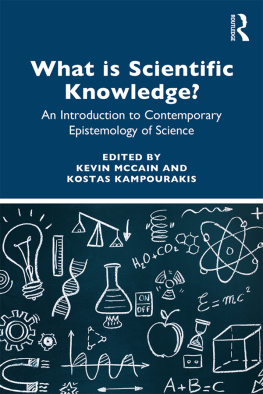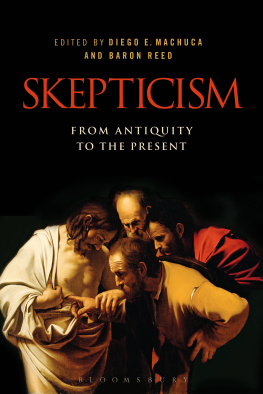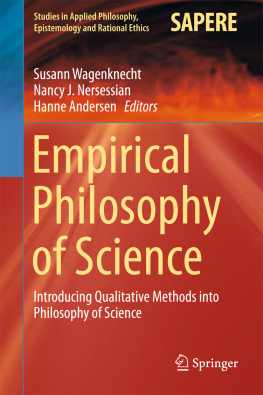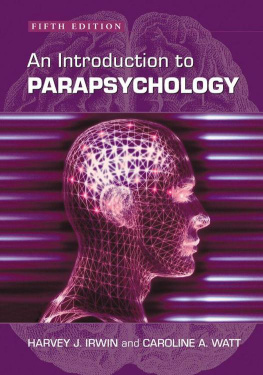Extrasensory
Perception
Support, Skepticism, and Science
Volume I
History, Controversy, and Research
Edwin C. May and Sonali Bhatt Marwaha, Editors
Foreword by James H. Fallon, PhD

Copyright 2015 by Edwin C. May and Sonali Bhatt Marwaha
All rights reserved. No part of this publication may be reproduced, stored in a retrieval system, or transmitted, in any form or by any means, electronic, mechanical, photocopying, recording, or otherwise, except for the inclusion of brief quotations in a review, without prior permission in writing from the publisher.
Library of Congress Cataloging-in-Publication Data
Extrasensory perception: support, skepticism, and science / Edwin C. May and Sonali Bhatt Marwaha, Editors; Foreword by James H. Fallon, PhD.
volumes cm
Includes bibliographical references and index.
Contents: Volume 1. History, Controversy, and Research.
ISBN 9781440832871 (hardback) ISBN 9781440832888 (ebook)
1. Parapsychology. I. May, Edwin C., 1940 editor. II. Marwaha, Sonali Bhatt, 1963 editor. III. Fallon, James H., writer of foreword.
BF1031.E8872015
133.8dc232014047692
ISBN: 9781440832871
EISBN: 9781440832888
19 18 17 16 151 2 3 4 5
This book is also available on the World Wide Web as an eBook.
Visit www.abc-clio.com for details.
Praeger
An Imprint of ABC-CLIO, LLC
ABC-CLIO, LLC
130 Cremona Drive, P.O. Box 1911
Santa Barbara, California 93116-1911
This book is printed on acid-free paper 
Manufactured in the United States of America
To
the founders of the Society for Psychical Research
and
the multidisciplinary researchers
who have sought and seek to examine some
of the enigmas of the nature of Reality
Contents
James H. Fallon
Edwin C. May and Sonali Bhatt Marwaha
Nancy L. Zingrone and Carlos S. Alvarado
Anand Jayprakash Vaidya
Richard Corry
Christopher C. French
Eric-Jan Wagenmakers, Ruud Wetzels, Denny Borsboom, Rogier Andrew Kievit, and Han L. J. van der Maas
Jessica Utts
Patrizio Tressoldi and Michael Duggan
Loyd Auerbach, Dominic Parker, and Sheila Smith
Lance Storm and Adam J. Rock
Joseph W. McMoneagle
Dean Radin
Michael A. Persinger
Adrian Ryan and S. James P. Spottiswoode
Foreword
James H. Fallon
This two-volume compendium will become required reading for our first-year graduate students and highly recommended reading for our postdoctoral scholars, especially those who have let slip the rapier edge of their critical thinking. This may seem a bit odd coming from a basic sciences hard-boiled neuroscientist who has never published an article or even uttered a public word about extrasensory perception, psi, anomalous cognition, or other noms de voyage with which this field has traveled.
The general field of extrasensory perception has deep historical roots dating perhaps to the first cultural, artistic, and burial artifacts of both homo sapiens and Neanderthalensis. But the birth of scientific study in this field, starting perhaps in the golden era of the 1930s, is nigh only a century old. And a tempestuous history it has certainly endured, roughly paralleling the controversies and upheavals in our understanding of quantum physics and of consciousness itself. But is it time for a new summary compendium of the field? Further, have there been the requisite advancements in technique, experimental approaches and findings, and novel theory, to justify a comprehensive reanalysis and introspection of the state of this field, as detailed comprehensively in these two volumes? I wouldnt have agreed to write this forewordbeing an otherwise mainstream biological and psychiatric academicunless I was convinced the answer to these two questions is yes.
What struck me most while reading drafts of the chapters was not the novelty of the issues brought upalthough there are some startlingly unique onesbut their familiarity in my own fields of neuroscience and psychiatry. Questions of optimal experimental design; providing falsifiable hypotheses for others to, rightly so, tear apart; statistical design and testing and what those numbers really mean in ones data set; providing believablebut to whommechanisms of action to explain ones findings; and ensuring ethical handling of the entire experiment and the subjects recruited, and protections against fraud and conflict of interest. This was familiar territory. But what stunned me and made me shift uncomfortably in my chair was that these psi researchers were doing it better than most of my mainstream colleagues in their publications and grants. Perhaps this derives in part from being embedded in a century of blistering attacks from every enclave of science and nonscience. Relentlessly. But I do not offer up a dose of apologia here for these psi scientists, but rather a reluctant admission that a group of scientists, often kept at bay and outside the pale of straight science and medicine, were doing it mostly better than we were.
Virtually every scientist I have ever met has a recurring storythat they or someone close to them have experienced the seemingly impossible, most often a violation of the commonsense belief that time is asymmetric at its heart and moves in only one direction. Even with their knowledge that there is precious little in long dearly held equations in Newtonian or quantum equations that requires that time moves in a rectified, forward direction, they still claim that precognition is impossible. One of the curious sidebars to these conversations with mainstream scientists is that many will tell you that (1) we actually know little of the fundamental structure of reality, (2) we know very little of the basis of broadly accepted experiences, consciousness, and (3) that even though we think that something like psi may actually exist, we would never admit it outside of a happy hour where no other scientists are present, lest we risk our grant proposals coming up short by 0.5% in the next federal funding cycle. Beyond these common experiences are those that illuminate the problem to unreasonables; that many of us know Nobel laureates and National Academy members who are rather convinced, uncomfortably so, of the existence of psi phenomena, and at the same time know others in religious and metaphysical fields who, astonishingly, express with great certitude that precognition and all psi is an impossible and absurd idea and little more than magical wishful thinking. Im pretty much of this latter category of mainstream scientists who is considered, even by my own science colleagues, as a goat although anomalistic psychology goat is closer to my own approach.
1 The terms sheep-goat(believers-nonbelievers in psi) were developed by Gertrude Schmeidler, professor of psychology at the City University of New York (CUNY) in 1942. Anomalistic psychology is the study of human behavior and experience connected with what is often call the paranormal, without the assumption that there is anything paranormal involved.
I should explain, lest I risk offering up a softball free pass to this wild field of science. The softening, however slight, of my stance on the existence of psi phenomena has followed on several experiences in the past decade. The first was a psi meeting entitled A Meeting of Minds: Invitational Workshop on Anomalous Cognition I was invited to at the University of British Columbia that included equally sheep, goats, and skeptics. I was invited as someone half in the goat and half in the skeptic cadre. More importantly, what was clear from that meeting is that the psi scientists, the leaders in the field, were most interested in critique, the sharper and pithier the better. This impressed not only me, but more importantly, the other goats and skeptics invited to the meeting, which included Nobel laureates and National Academy of Science cognoscenti. It was clear to us that this was to be a truly rare event, where open criticism and utter honesty were prized above all other considerations. In addition, one of the editors of these volumes (May) was one of the presenters.
Next page
